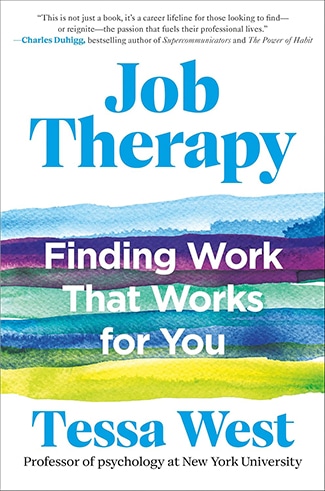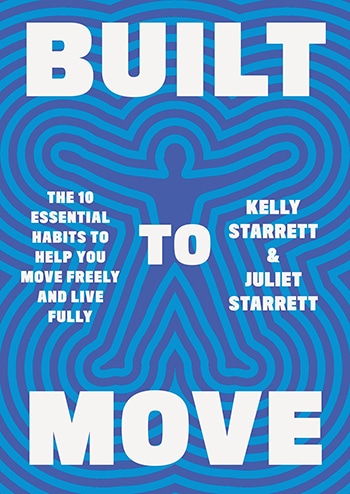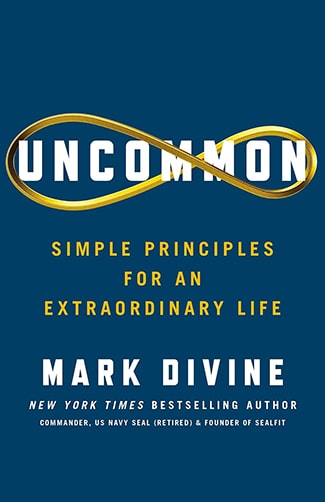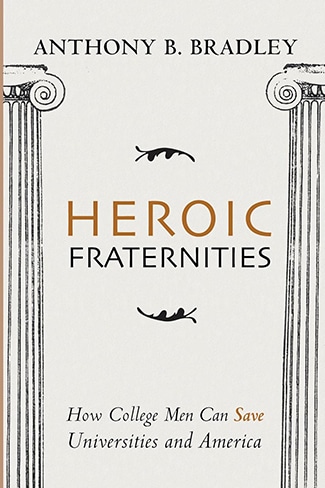Podcast Summary
Emerson's Stoic Philosophy: Living Authentically: Through Emerson's stoic philosophy, we can learn self-reliance, embrace weaknesses, trust our genius, gain confidence in nature, and live with courage.
Ralph Waldo Emerson, an American philosopher, can serve as a source of inspiration for living a non-conformist life through the application of stoic principles. Mark Matusic, the author of "Lessons from an American Stoic," discovered Emerson during a difficult time in his life and was deeply moved by his transcendental vision of human potential. Emerson's work resonated with Matusic because of its emphasis on self-reliance, embracing one's weaknesses, trusting one's own genius, gaining confidence in nature, and living with greater courage. Although often considered a transcendentalist, Emerson's philosophy shares many similarities with stoicism, including the belief that we create our own reality through our perception and that obstacles can be opportunities for growth. By studying Emerson's stoic philosophy, we can learn to live more authentically and find greater meaning and fulfillment in our lives.
Belief in self-reliance and higher wisdom: Emerson's self-reliance isn't about isolation or egotism, but trusting inner guidance and recognizing personal power to respond to circumstances. Stoics and Emerson share belief in interconnectedness, self-awareness, and self-acceptance.
Both Stoics and Emerson believed in the power of character and self-reliance, which is rooted in connecting to a higher wisdom within oneself. Emerson's concept of self-reliance is often misunderstood as isolationism or egotism, but it's actually about relying on one's inner guidance and recognizing that we have the power to choose how we respond to circumstances. The Stoics and Emerson also shared a belief in the interconnectedness of all things and the importance of self-awareness and self-acceptance, including our contradictions. By embracing this philosophy, we can shift from an external locus of control to an internal one and live more empowered lives. Emerson's work offers valuable lessons on how to become more self-reliant, and his emphasis on self-awareness, acceptance of contradictions, and inner guidance can help us lead more fulfilling lives.
Embrace imperfections as sources of strength: Own your unique qualities and use them to make a positive impact on the world, learn from losses and disappointments, and don't strive to be someone else's idea of success.
Emerson believed that our imperfections can be sources of strength and that we should own them instead of pushing them away. He also encouraged introspection and understanding that our losses and disappointments can serve as valuable lessons. Emerson himself struggled with self-doubt and insecurity throughout his life, but he turned his experiences into powerful writing and ideas that influenced many. Rather than striving to be someone else's idea of a successful person, we should focus on owning our unique qualities and using them to make a positive impact on the world.
Exploring Self-Discovery Through Journal Writing: Journaling is a powerful tool for self-exploration and personal growth, helping us uncover the truth about ourselves and the world by examining our thoughts and perspectives.
Following one's own path and expanding one's perspective through self-inquiry are essential for personal growth and reaching one's potential. Emerson emphasized the importance of journal writing as a tool for self-discovery and understanding that our perspective shapes our view of the world, revealing more about ourselves than the external reality. Self-inquiry is an ongoing practice, as our needs and understanding of ourselves shift constantly. Emerson's influence on Thoreau and the Stoics demonstrates the significance of journal writing in capturing profound thoughts and ideas that might not otherwise be shared with the world. The practice of journaling helps us cut through dissembling and lies we tell ourselves and uncover the truth, ultimately leading to a deeper understanding of ourselves and the world around us.
Separate truth from interpretations and trust inner voice for authentic living: Practice self-inquiry to live authentically, separate truth from interpretations, and trust inner voice to guide non-conformity against societal norms.
Self-inquiry and non-conformity are powerful tools for personal growth and authentic living. Self-inquiry helps us separate our interpretations of reality from the truth, allowing us to awaken to a more authentic way of being. Non-conformity, inspired by Emerson's idea, means trusting our unique inner voice or genius to guide us towards our own fruition. Society may try to shape us, but to live a fulfilling life, we must learn to swim against the tide and trust our own intuition and inner guidance. Emerson believed that our power lies within ourselves, and living according to our own standards is the greatest accomplishment. By embracing these practices, we can heal the division and conflict that arise when we try to impersonate others and live authentic, whole lives. Both Thoreau and Emerson exemplified non-conformity in their own ways, with Thoreau's embrace of transcendentalism inspiring Emerson's admiration.
Living authentically according to one's beliefs: Emerson and Thoreau championed self-reliance, confidence, and authenticity despite societal criticism and adversity.
Emerson and Thoreau, despite their differences, were trailblazers in living authentically according to their beliefs. Emerson, a former minister, bravely gave up his prestigious position and faced criticism for his unconventional views. He believed in the importance of self-reliance, confidence, and being true to one's own changing nature. Thoreau, on the other hand, lived a simpler life and obeyed his own ethical principles, inspiring Emerson. Confidence, for Emerson, meant having faith in one's inner guidance, which connects to the divine and empowers us to navigate life's challenges. Both men show us the importance of staying true to ourselves and living authentically, even in the face of adversity.
Connecting to the power greater than ourselves through enthusiasm or spirit: Emerson believed that enthusiasm, or a passionate connection to nature and the power greater than ourselves, is essential for living a self-reliant and fulfilling life. We possess the ability to adapt, regenerate, and be resilient, and connecting to nature can provide us with vitality and confidence.
According to Emerson, our response to external conditions and our connection to the power greater than ourselves, which he calls enthusiasm or spirit, are key to living a self-reliant and fulfilling life. Enthusiasm, derived from the Greek word meaning "filled with God," is a state of passion and connection to the natural world that enlarges us and gives us confidence. Emerson believed that as part of nature, we possess the ability to adapt, regenerate, and be resilient, and that connecting to nature can provide us with vitality and confidence. Despite his own struggles with physical vitality, Emerson believed that we are all electric beings, capable of tapping into the stream of power that runs through us. His inspiring words on vitality and confidence contrasted with his personal life, which was marked by physical weakness and a longing for the vitality he saw in others.
Staying spiritually vital: Cultivate spiritual vitality through attention, compassion, empathy, and interest to live a meaningful and engaged life.
Vitality, both physical and spiritual, is essential for living a meaningful and engaged life. Emerson, despite his own physical weakness, emphasized the importance of nurturing one's spiritual vitality through attention, compassion, empathy, and interest. This idea resonated with admirers like Nietzsche and Hildegard of Bingen, who also recognized the importance of spiritual vitality in the face of their own physical limitations. By staying engaged with the world and being open to learning, we can cultivate a strong spiritual vitality that enriches our lives and allows us to connect with others. So, don't be a "potato head" – stay engaged, curious, and vital in spirit.
Emerson's struggle with emotional intimacy: Emerson's intellectual brilliance and fascination with people were overshadowed by his inability to connect emotionally, leading to a profound sense of alienation and a lifelong struggle to overcome his distance from others.
Emerson, despite his intellectual brilliance and fascination with people, struggled deeply with emotional intimacy and connection in his relationships. His inability to be intimate led to a profound sense of alienation and a lifelong struggle to overcome his distance from others. This was evident in his complex and tortured relationship with Margaret Fuller, as well as his strained friendship with Thoreau. Despite his efforts to open up more, Emerson's temperament and nature made it difficult for him to express vulnerability and connect emotionally with those around him.
The importance of intellectual connection in deep relationships: Emphasize deep conversations and understanding inner workings, prioritize intellectual connection, and face fears with courage to build strong and enduring relationships.
Intellectual connection is crucial in forming deep and meaningful relationships, as exemplified by the friendship between Ralph Waldo Emerson and Henry David Thoreau. Emerson, who valued deep conversations and understanding the inner workings of others, found this connection particularly important. Despite their differences and emotional challenges, Emerson's emphasis on intellectual connection and caring for the other person's inner life served as a reminder for us in today's fast-paced world to prioritize this aspect of relationships. Additionally, Emerson's experience of profound depression after the death of his wife, Ellen, highlights the importance of courage and facing fears in the face of adversity. These lessons from Emerson's life offer valuable insights into cultivating strong and enduring relationships.
Facing our deepest fears for personal growth: Confronting fears leads to understanding and acceptance, diminishing their power, and promoting personal growth.
Facing our deepest fears can lead to profound personal growth. This was exemplified in the life of Ralph Waldo Emerson, who, after the death of his wife, went to the cemetery to confront his fear of her dead body. By acknowledging and understanding his fear, Emerson was able to move past it and shift the direction of his life. This experience taught him that knowledge is the antidote to fear, and that by facing our fears head-on, we can diminish their power over us. Emerson believed that external experiences, such as grief, do not have the lasting ability to disempower us, and that fear is something we can invite in and defang through understanding and acceptance. As Emerson's aunt, Mary Moody Emerson, advised, doing what we are afraid to do can lead to great personal growth.
Discovering Your Unique Brand of Courage: Embrace your personal journey to find and embrace your unique brand of courage, as influenced by societal norms and personal role models, but ultimately defined by your own means.
Courage comes in various forms and it's essential to discover and embrace one's unique brand of courage. Mark Matusik, the author of "Lessons from an American Stoic," shared the story of his great spiritual tutor, Mary Moody Emerson, who lived fearlessly and defied societal norms. She influenced Mark greatly, but he understood that he needed to find his own path to self-empowerment. Emerson, a philosopher, emphasized the importance of adhering to one's own means and not trying to adopt another's courage. Matusik's conversation with Brett McKay on the AOM Podcast highlighted the importance of understanding and embracing the different types of courage, as well as the ongoing process of personal growth and self-discovery. To learn more about Mark's work, visit his website, markmatusik.com, or join the Seekers Forum community. Remember, courage is a personal journey, and it's essential to find what empowers you.











